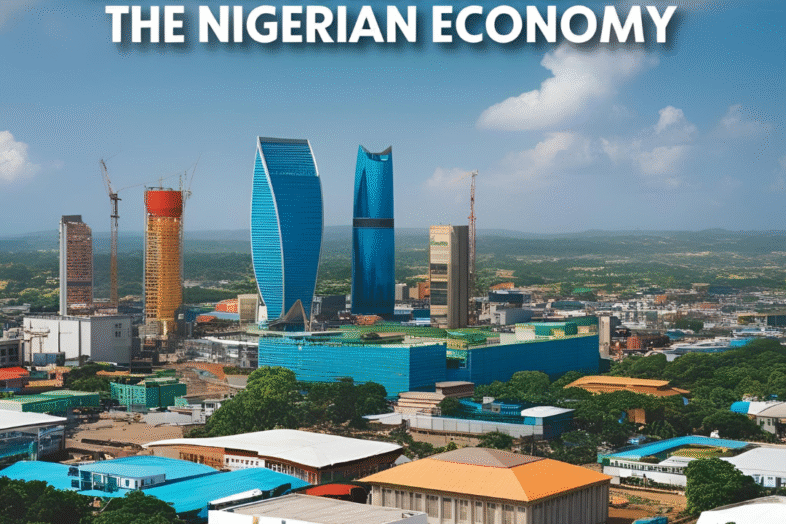
Nigeria, Africa’s largest economy, is a dynamic and diverse market with several key sectors driving growth and development. From oil and gas to agriculture, fintech, and manufacturing, each industry plays a crucial role in shaping the nation’s economic landscape.
In this edition of Tuesday Trends, we explore the latest developments, challenges, and opportunities in Nigeria’s most influential sectors. Whether you’re an investor, entrepreneur, or simply curious about the economy, this guide provides valuable insights into where Nigeria stands today—and where it’s headed tomorrow.
1. Oil & Gas: Still the Backbone of the Economy
Nigeria remains heavily reliant on its oil and gas sector, which accounts for over 90% of export earnings and a significant portion of government revenue. However, global shifts toward renewable energy and local challenges like oil theft and pipeline vandalism have forced the country to rethink its dependence on crude oil.
Key Trends:
- Diversification Efforts: The Nigerian government is pushing for more investment in gas production and refining to reduce reliance on imported petroleum products.
- Modular Refineries: Local refining capacity is expanding with projects like the Dangote Refinery, expected to transform Nigeria into a net exporter of petroleum products.
- Energy Transition: Nigeria is exploring cleaner energy sources while balancing economic needs, with initiatives like the Decade of Gas program.
2. Agriculture: Feeding the Nation & Boosting Exports
Agriculture contributes about 25% to Nigeria’s GDP and employs over 70% of the workforce. With a growing population and increasing food demand, this sector presents immense opportunities for growth and investment.
Key Trends:
- Tech-Driven Farming: Agri-tech startups like Farmcrowdy and Hello Tractor are revolutionizing farming through digital platforms, financing, and mechanization.
- Export Potential: Nigeria is a major exporter of cocoa, sesame, cashew nuts, and cassava, with increasing demand from Europe and Asia.
- Government Policies: Initiatives like the Anchor Borrowers’ Program (ABP) aim to boost local production of staples like rice and wheat.
3. Fintech & Digital Banking: Leading Africa’s Financial Revolution
Nigeria’s fintech sector is one of the fastest-growing in Africa, driven by a young, tech-savvy population and increasing smartphone penetration.
Key Trends:
- Digital Payments Boom: Companies like Flutterwave, Paystack, and Opay are transforming payments, remittances, and e-commerce.
- Regulatory Support: The Central Bank of Nigeria (CBN) has introduced policies like the Sandbox Framework to encourage innovation in digital banking.
- Cryptocurrency & Blockchain: Despite regulatory uncertainties, Nigeria remains one of the world’s largest crypto markets, with growing interest in blockchain solutions.
4. Manufacturing: Local Production on the Rise
Nigeria’s manufacturing sector is gradually recovering from economic challenges, supported by government incentives and a push for local content.
Key Trends:
- AfCFTA Opportunities: The African Continental Free Trade Area (AfCFTA) opens new markets for Nigerian-made goods.
- Import Substitution: Policies like border closures and tariffs on imported goods aim to boost local industries like cement, textiles, and food processing.
- Challenges: High production costs, unreliable power supply, and FX shortages remain major hurdles.
5. Telecommunications & Tech: The Digital Economy Expands
With over 160 million internet users, Nigeria’s tech ecosystem is booming, attracting global investors and fostering innovation.
Key Trends:
- 5G Rollout: MTN, Airtel, and other telecom giants are expanding 5G networks, enhancing connectivity and digital services.
- Startup Ecosystem: Nigeria leads Africa in startup funding, with companies like Andela, Kuda Bank, and Jumia making global waves.
- E-Government: Digital ID systems and online public services are improving efficiency and transparency.
Conclusion: A Diversified Future Ahead
While Nigeria faces economic challenges such as inflation, unemployment, and infrastructure deficits, its key sectors continue to show resilience and potential. From oil and agriculture to fintech and manufacturing, opportunities abound for investors and entrepreneurs willing to navigate the market strategically.
Stay tuned for more Tuesday Trends as we keep you updated on Nigeria’s evolving economy. Which sector do you think holds the most promise? Share your thoughts in the comments!









Add Comment